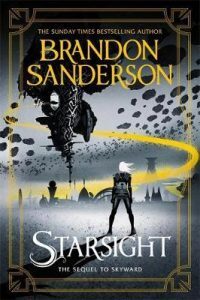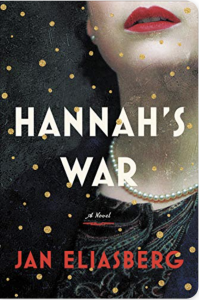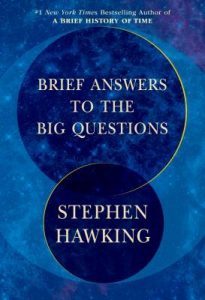C.A. Gray's Blog, page 36
October 8, 2021
Blood Covenant Origins: C.A. Gray
Today’s podcast isn’t a review: it’s a promo for my new book, Blood Covenant Origins: Biblical Retellings. Ebooks are free from any major retailer. Paperbacks are currently Amazon only. Audio is on the way!
The post Blood Covenant Origins: C.A. Gray appeared first on C.A. Gray.
October 1, 2021
Review of Starsight

This story is an equally compelling read to the first in the series, but I still liked it slightly less for three main reasons: first, Spensa is the only character in the story really that carries over from the previous one, because she hyperjumps across space and meets a bunch of aliens. Second, while I buy that she’s super amazing and everything, she feels like a one woman show in this version (of course she does; she’s all alone, so everything relies upon her creativity, skill, and ingenuity). In the previous book, she was part of a team, which was both more believable and somehow more endearing. Third, while the ending was still a super spectacular awesome Spensa moment, somehow it couldn’t compete with the ending of the first book in the series — probably because in Skyward, everyone expected so little of her. Even she expected nothing of herself… but then circumstances pushed her to the brink of herself, and she had literally nothing to lose.
The plot: Spensa, on her home planet of Detritus, encounters an alien who was in route to Starsight, an alien civilization many light-years away from them. Because she can hear the Krell’s communications with one another in the “nowhere,” she learned in the climax of the last book that she can also transport herself in the nowhere, meaning that she and only she can hyperjump across space. She uses this, as well as a hologram from her super advanced space ship, to impersonate the alien who is back home in Detritus recovering. Her goal is to steal some of the alien hyperjump technology so that the rest of the humans can do what she does. They need to do it fast, so they can leave Detritus, since the Krell are threatening them with extinction.
Spensa infiltrates the alien political system, even to the point of training other pilots there whom she knows will eventually attack humans. Humans are universally hated on Starsight, believed to be excessively violent. In the course of the story, though, even as Spensa gets deep into alien politics, she realizes that the aliens are “people too,” and befriends them–all except the one other human among them, who ironically despises other humans and ultimately betrays her.
There were I think two or three very brief interludes back on Detritus also following Jorgan, the love interest from the first book. It seemed that the implication there was that Jorgan may also have the same “defect” that Spensa does. That hadn’t been set up earlier in the story that I can recall, though I assume it was mostly a setup for the next book in the series.
My rating: ****
Language: none
Violence: none (fantasy only)
Sexual content: none
Political content: none
The post Review of Starsight appeared first on C.A. Gray.
Brief Answers to the Big Questions, by Stephen Hawking
Today’s podcast review comes from this blog review of Brief Answers to the Big Questions.
The post Brief Answers to the Big Questions, by Stephen Hawking appeared first on C.A. Gray.
September 24, 2021
Skyward by Brandon Sanderson
Today’s podcast comes from this blog review of Skyward.
The post Skyward by Brandon Sanderson appeared first on C.A. Gray.
Review of Hannah’s War

A compelling WWII drama — I’ve discovered I’m a big fan of books from that era. They come ready-made with all the conflict you could ever need; all you have to do is add some compelling characters and a slightly different scenario than what’s been done before.
In this case, the main character is Jewish physicist Dr Hannah Weiss, who was working in Germany on the atomic project before she escaped to America to help with the Manhattan Project instead. The story is told in two layers: Hannah’s interrogation by the American Jack Delaney, who believes she is a spy for the Germans, and her memories from Germany. She’s brilliant and excessively beautiful, as the narrator mentions often, but as a Jew, she was often accused of assisting the enemy (and as a woman, her contributions are constantly minimized). She certainly did aid the Germans for a time, and was entangled romantically with Dr Stephan Fry. But was she still aiding the Germans by feeding their own competing project information about the American progress? It certainly looks that way, and Jack is determined to prove it. The problem is, he’s falling in love with her at the same time.
The story is entirely fictionalized, but it’s compelling enough that I almost believed it was real. Hannah’s role in this version of events is certainly pivotal. Very well done!
My rating: ****
Language: present and at times a bit excessive
Sexual content: present, and I could have done without it, but it’s not constant. There’s a few scenes.
Violence: it’s WWII so it has to be there, but it was tastefully done I thought.
Political content: none that I could tell (historical only)
The post Review of Hannah’s War appeared first on C.A. Gray.
September 17, 2021
Review of Brief Answers to the Big Questions

This is a hard book to rate. On one hand, Stephen Hawking’s humility, dry humor, and the devastating disease he overcame make him incredibly endearing and admirable. On the other hand, I don’t think all of the questions he answered in this volume pertain to his area of expertise. Apparently there was some dispute about this, because the volume was comprised of his answers to questions that he was asked often, and he himself did admit that some argue religious questions, for instance, should not fall under the purview of science. I’d agree to a point–I certainly did find that arguments in the opposite direction (apologetics) helped to convince me of the truth of the Bible back when I was searching for such answers. But science only gets you so far. There’s a last leap of faith still required.
Hawking, meanwhile, drew the conclusion that there did not appear to be any role for God for a few main reasons. First: after the Big Bang, the scientific laws seemed to march forward inexorably, without outside intervention. Prior to that, he said, time did not yet exist, and therefore the concept of causation makes no sense. Asking “what caused the Big Bang” is like asking “what is south of the south pole?” The question has no meaning. (I understand what he means, but that sounds like begging the question to me.) Second, because of the concept of positive and negative particles constantly annihilating one another, he saw no need for anything to have triggered the initial explosion either. While he acknowledged the incredible fine-tuning of the universe in which we live, he argued that this can be explained away with what I consider a very suspect philosophical argument: The Anthropic Principle, which essentially argues that things must be the way that they are because we are here to ask the question of why they are the way they are–and if they weren’t, we wouldn’t be here to ask the question. That seems like circular logic to me, though I suspect Hawking did not think so because of the multiple worlds interpretation of quantum mechanics (which is apparently attributed to Feynman). In that view, all possible worlds actually do occur–so no matter how statistically unlikely a particular world might be, it’s bound to happen at least once. And that world would be the one in which we exist to ask questions like probability. (The idea that multiple universes exist seems to violate the philosophical concept of Occam’s razor: the simplest explanation is usually the right one. Multiple universes would introduce infinite complexity. Why not the collapse of the wave function interpretation of quantum physics instead?)
He also evoked the concept of Panspermia to support evolution: an argument that life on earth was seeded from space, where, somewhere, there’s presumably a more advanced life form than ours. (This gets around the problem that even if the earth is the four billion years old accepted in most scientific circles, that’s still not enough time for random chance to have produced life, statistically.)
Aside from that, I did find the questions Hawking answered about black holes, space and time travel, and speculation about what our future may hold to be very engaging. His overall outlook of the future of mankind reminds me of Matt Ridley’s optimism, though tempered with some of Elon Musk’s caution about the potential dangers of AI.
Hawking’s politics seeps into the text on a number of occasions as well. And yet, he was just so darn likable, it didn’t bother me.
My rating: ***1/2
Language: none
Violence: none (it’s nonfiction)
Sexual content: none (ditto)
Political content: pretty heavy but somehow I overlooked it.
The post Review of Brief Answers to the Big Questions appeared first on C.A. Gray.
The Ladies of the Secret Service, Constance Sayers
Today’s podcast review comes from this blog review for The Ladies of the Secret Service by Constance Sayers.
The post The Ladies of the Secret Service, Constance Sayers appeared first on C.A. Gray.
September 10, 2021
Review of Skyward

Wow, what an ending!!
I thought the story started out a bit slow, and even uninspired, seeming to be a mash-up of “Top Gun” and “Ender’s Game” with a teenage female protagonist. Spinna (spelling unknown since I listened rather than read) is the ultimate tomboy who idolizes her pilot father in a world where humans have colonized a planet called Detritus. They are engaged in an epic, ongoing battle with the Krell, who seem bent on human extinction–though no one even knows what a Krell looks like, let alone their motives. Spinna aspires to be a pilot like her father, until one day her father supposedly turns coward and runs from the fight, causing him to be shot down by his wingmate. Spinna subsequently grows up branded the daughter of a coward, and it becomes almost her caricature “core issue,” as she’s obsessed with proving everyone wrong.
Despite that caricature, though, I thought the characterization overall was good enough that I kept going, which is unusual for a sci fi story for me. As it progressed, I felt like the characters evolved and deepened. Spinna has to fight tooth and nail to be able to even go to flight school, and then (much like “Ender’s Game”) the majority of the book is her exploits at school, learning to fly and impressing people in spite of themselves. Her call sign is Spin, because of her name and also because that’s what her father called her. She starts off hating her flight leader (Jorgan, whom she calls “Jerkface,”) but of course that’s a setup for an enemies-to-lovers plot, which I can already see germinating for future books in the series. (Proverbial, but I nearly always enjoy that trope anyway).
It’s the ending, though, the last probably 10 chapters or so, that made me give it 5 stars. It’s rare for a book to pull off redemption THAT well. Sanderson managed to set up a believable, highest-stakes-possible scenario with everything against her. Even the setup had me almost tearful with anticipation of how awesome the payoff was going to be–reminiscent of “Harry Potter” in that way, or of “The Last Battle” in the Chronicles of Narnia. I immediately bought the next book in the series before I’d even finished it. It was that good.
My rating: *****
Language: none that I can recall
Sexual content: none
Violence: none (it was there but not explicit)
Political content: none
The post Review of Skyward appeared first on C.A. Gray.
Tribe by Sebastian Junger
Today’s podcast comes from this blog review of Tribe.
The post Tribe by Sebastian Junger appeared first on C.A. Gray.
September 3, 2021
A Voice in the Wind, Francine Rivers
Today’s podcast review comes from this blog review of A Voice in the Wind.
The post A Voice in the Wind, Francine Rivers appeared first on C.A. Gray.



